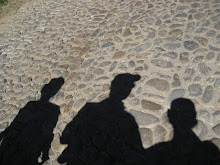Hitler gained control because of lucky circumstances (the people were tired of a failing Weimar Republic and a horrible president); Hitler was perseverant and never lost hope in his party even when it was the "butt of jokes"; he used lots and lots of manipulative propaganda; Hitler used legal tactics (such as Article 48); the nazi party was well organized and supported (he had lots of patronage); he traveled around the country in a private plane; he appeared strong and promised the people what they wanted; hitler got rid of his opponents by blaming the Communists for the Reichstag fire; he used nationalism to gain popular support; he took the blame off the germans by saying the war guilt clause was ridiculous; he killed those against him in the "Night of Long Knives;" he used the pre-existing anti-semitism to his advantage and found a common enemy for all germans to unite against; and finally he gained the support of the President and the Army when Hitler became President and therefore the army was forced to swear allegiance to him.
Most of my research focused on how Hitler actually gained his power because for me that was the most interesting part about this guy. I understand how he kept his power- force, murderer, relentless torture and slaughter, etc... Granted the guy needed some brains in order to come to power and to correctly carry out his plan to destroy the Jewish race- but he was bloodthirsty never the less. I obviously have some strong emotions towards Adolf Hitler (as shown in a few earlier posts), but i do respect his manipulation skills. He was definitely more of a totalitarian dictator than Peter the Great or Napoleon- but i think we all knew that before. Everyone knew that Hitler was considered the first totalitarian dictator. We were just curious what aspects of totalitarianism were used in Peter and Napoleon's respective rules. Hitler had control over EVERYTHING through the use of FORCE and propaganda.
BUT
i have NO doubts that HITLER was a
BRUTAL
TOTALITARIAN
DICTATOR
IN GERMANY.
